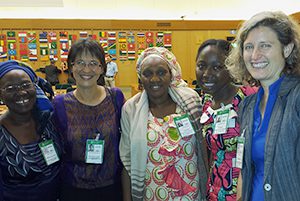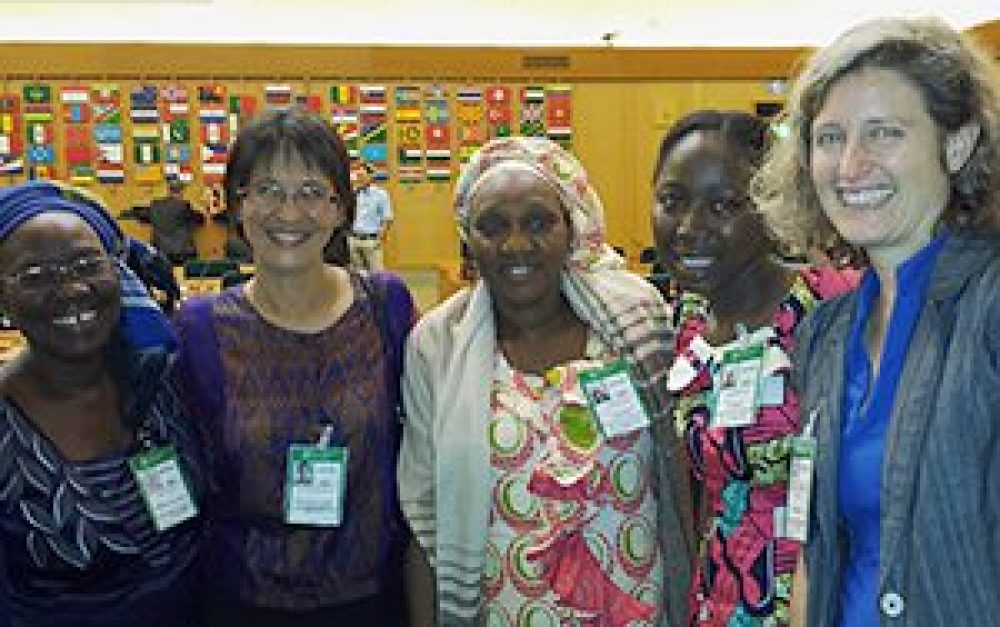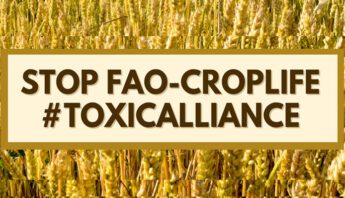Walking past the ancient Roman Coliseum on my way to the recent International Symposium on Agroecology, the surprising twists of history were on my mind. Even a few years ago, the U.N. Food and Agriculture Organization — host of the symposium — would never have organized such a meeting. “Agroecology” was considered far too radical and dangerous a concept to many in FAO who had dedicated long careers to exporting the chemical-intensive “Green Revolution” model of agriculture around the world.
Yet there I was, along with 400 other scientists, agri-food system researchers, farmers and social movement leaders, commencing an intensive two-day exchange of agroecological knowledge, science and practice in the heart of Rome.
Breaking it down
The term “agroecology” is not nearly as well known in the United States as it is around the world. But it’s really not too hard to understand. Considered the foundation of sustainable agriculture, agroecology is the science and practice of applying ecological concepts, principles and knowledge to the design and management of sustainable agri-food systems.
Agroecological farming supports the multifunctional dimensions of agriculture, which include not only food, jobs and economic well-being, but also culture, social and environmental benefits, and ecosystem services like pollination, natural pest control, nutrient and water cycling and erosion control.
Perhaps most critically, agroecology strengthens ecological and economic resilience in the face of today’s climate, water and energy crises, offers freedom from corporate control, and encourages democratic, decentralized decision-making by farmers.
We peasant women of [Karnataka, India] are already successfully promoting agroecology. Why can’t FAO do the same? — Nandini Kardahalli Singarigowda, agroecological producer from Karnataka State Farmers Association of India.
Agroecology is thus also a social movement that challenges the tightly controlled hierarchies and concentrated power of corporate industrial agriculture. Instead, agroecology proposes a flowering of creative, diversified and farmer-led investigations, innovations and equitable social relationships, realized throughout the agri-food system.
This movement is perhaps best epitomized by the leadership of La Via Campesina, and in particular, the thousands of peasant farmers across Latin America where agroecological practice is most deeply rooted.
A change is needed
Walking by the crumbling 2,000 year-old ruins of the Coliseum, one is reminded of how precipitously the Roman empire collapsed under its own weight. Similarly, industrial agriculture is falling hard today, after a much shorter 50-year reign. As an attempted approach to feeding the world, today’s chemically intensive industrial production of a few commodity crops is failing miserably. In the U.S., regular news reports of contaminated soil, superweeds and rural communities sickened by pesticide drift are but a few of the unhappy indicators of just how unsustainable the industrial farming system is.
In this context, the agroecological success stories we heard in Rome are more than refreshing good news. At this critical juncture, the combination of farmers’ stories of transformation and the wealth of scientific evidence from decades of research point us towards agroecology as the most promising way forwards — and our best option yet of building a truly equitable, resilient and sustainable food and farming system.
A global call for action
 Early in the morning of the symposium, Pesticide Action Network and 66 scientists from around the world sent a letter to FAO’s Director General, José Graziano da Silva, calling on FAO to “launch a UN-system wide activity on agroecology as the central strategy for addressing climate change and building resilience in the face of food crises.”
Early in the morning of the symposium, Pesticide Action Network and 66 scientists from around the world sent a letter to FAO’s Director General, José Graziano da Silva, calling on FAO to “launch a UN-system wide activity on agroecology as the central strategy for addressing climate change and building resilience in the face of food crises.”
In his final address, Graziano da Silva thanked the scientists for their letter, asking for their guidance and adding that FAO would initiate two to three follow-up symposia on agroecology in Asia, Africa and Latin America.
Yet as SOCLA — the Latin American Scientific Society of Agroecologists — reported, despite the promising start, there was a notable lack of discussion on critical issues such as gender dynamics, corporate control of food systems and access to land, seeds and water.
More troubling is FAO’s role in the murky “Global Alliance for Climate-Smart Agriculture,” a much-publicized initiative that talks vaguely about “sustainably intensifying production” in a climate-friendly way — while ignoring entrenched social inequities and power imbalances that benefit large corporations over poor farmers. (FAO’s partners in the Alliance include well-known corporate bad actors like Syngenta and Walmart, among others.)
Clearly, we will all need to keep a close eye on the “Global Alliance” and its partners. Still, FAO’s tentative steps in support of agroecology, so long in coming, are noteworthy. And what encourages me most is the knowledge that our diverse and vibrant global agroecology movement is not waiting, but is moving steadily forward — led by thousands of farmers and scientists working together, making it happen.
Photo credit: The AgriCultures Network on Flickr.








